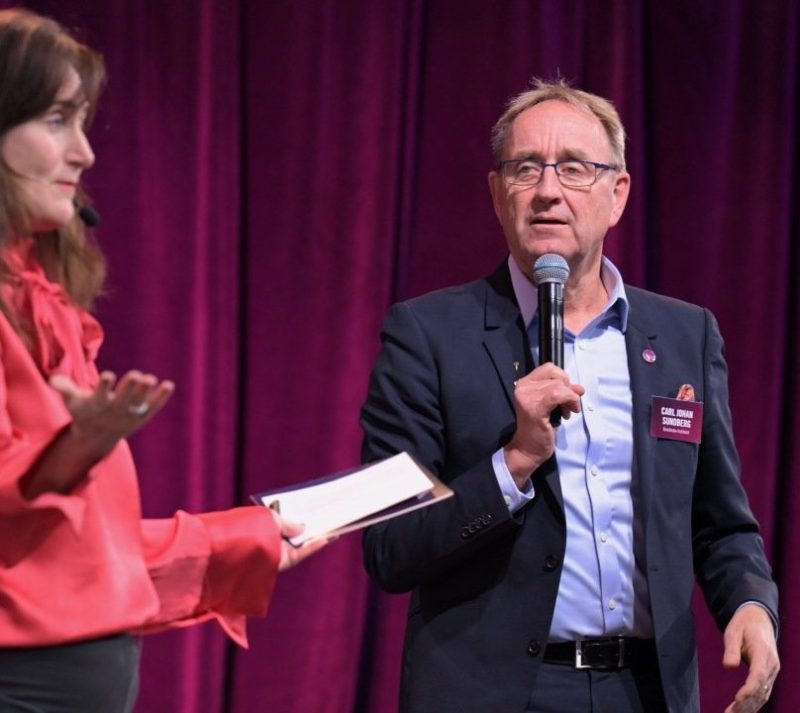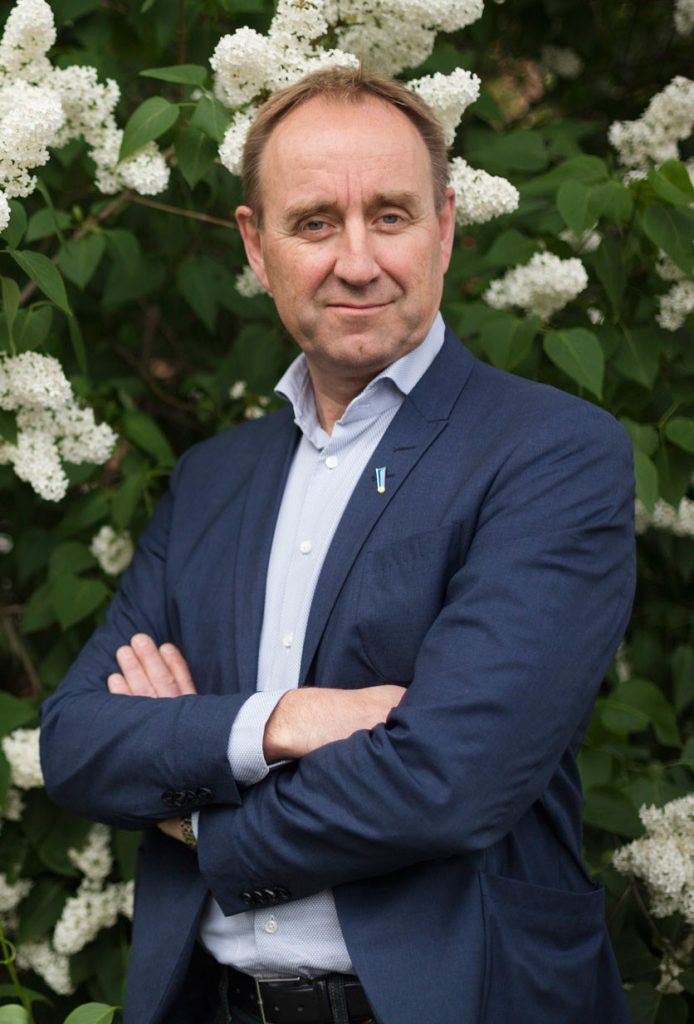
Science, Leadership, Innovation and Public Initiatives
The Inspiring Career Path of Carl Johan Sundberg, Dean of Campus North
Written by Ana Vankova, PhD student at Karolinska Institutet and participant of the course “Career Skills for Scientists” during the autumn term 2025.
Carl Johan Sundbergs positive outlook on life and curiosity about people have been great contributors to his rich career, spanning from medical practice to research, intertwined with entrepreneurship and biotechnology, science communication and governmental projects to improve public health. Here he shares his truly inspiring career path that has led him to the current position as a Dean of Karolinska Institute, Campus North.
I do not think about regretting, but I am quite flexible, so I think I would have enjoyed other career paths too.

What inspired you to leave medical practice and pursue a career in academia?
My initial plan was to do a basic science PhD because of the robustness of experimental science. Mainly, I wanted to be involved in real experiments. My long-term plan at the time was to become a clinical scientist.
However, after working as a physician and being licensed, I realized that being employed by a healthcare provider did not provide enough degrees of freedom. At that time, I was involved in a lot of activities outside of the clinic too, so I felt limited. That was the point when I decided to build my own research group. While doing my medical internship I was asked to be scientific secretary of a parliamentary commission on changes of the law against doping. There I learned about the political and legal processes and the role of science in that context. At the time I was already doing some popular science communication. As part of my effort to popularize science for the general public, I have designed three scientific exhibitions at the Natural History museum.
The first exhibition was about the human senses, the second one was themed “Man in space” in connection with the opening of the Cosmonova auditorium. At that time, I had also spent some time in the space research center in Houston, Texas. The third exhibition was themed “Marvels of the human body”. As a part of being involved in science communication I have also written biology textbooks for students at the age of 12-19.
In 1999, I was asked to become an investment director by a venture capital (VC) firm. I accepted and worked there part time, while continuing to do research. Over the years I have served on approximately 15 life science company boards. When I ended the position, I worked full time in academia and later became head of department, while most recently Dean of Campus North at Karolinska Institutet. I am still involved in a lot of external activities as well.
What does a typical workday look like for you, and how do you balance your different responsibilities?
Yesterday, for instance my workday began with a call at 07:00 am with a colleague. Then I had a meeting about the Medical History museum which holds historical artefacts related to health and medicine. The day continued with another meeting, this time at the Royal Palace with Prince Daniel and people involved in the project Generation PEP, an initiative aiming to improve the mental and physical health of kids in schools and preschools. I am on the steering board of the initiative. After that I went to Karolinska Institutet where I had a meeting with my research group to discuss a clinical trial that we are conducting which is due to start this fall. The day continued with a second meeting with Prince Daniel and the President of KI about a strategy for collaboration with Generation Pep and the role of KI. I ended the day with a dinner together with my group to celebrate the clinical trial that we are starting.
Today I have a meeting with a foundation about funding for an educational initiative. Later in the day I will meet with representatives of a governmental commission initiated by the minister of health on a health economics framework for evaluation of public health policies. In the second part of the day, I will meet with one of my PhD students.
You have experience both in academia and the private sector such as in entrepreneurship. How would you compare the two worlds? What aspects do you enjoy most (and least) about each?
I really enjoy the mix of things. The private sector is more targeted in the sense that there is an idea that you push and you are driven by determining if it will succeed, be meaningful and cost-effective. It can be really interesting to build a case and the evidence for it. Furthermore, the health sector market is very regulated and based on evidence. If you have a good solution you can be well rewarded. In academia, on the other hand you are seeking for answers to questions driven by your curiosity. That is why I did not leave academia, and it is my continuing base. I feel that it is a world where you can be” nerdy” in a unique way. Industry can abandon a field in an instant if it is not profitable or deemed non-strategic. In academia, scientists work on a problem for decades. I think it is really important to have experts in a field that can go deep on specific questions. I consider myself happy, because I really like what I do.
I think at the base of it all is to be interested in people and have good communication skills. This is partly shaped by how I grew up. I have a large family and 43 cousins, many of which I see regularly. I also have maintained old friendships from childhood, friends from the military service and from medical school. It is very inspiring to meet people from different fields and perspectives.
What would be your advice for anyone curious about venture capital and investing?
I have a 10-year experience in venture capital and was involved in assessing investment prospects, start-ups and companies. It is a job that is quite demanding. Many aspects must be considered, which is why a whole team with different competencies have to work well together. It is an interesting job, but it of course depends on the team, the firm and its capabilities.
If you could go back and change anything in your career path, would you? Do you have any regrets or lessons you wish you had learned earlier?
That´s an interesting question. If I were to go back, I might have, but it is tricky because I moved in so many different settings and found them all interesting in different ways. If I had to choose from two options instead it might be that I would have taken a different path here and there, but I would say that I really enjoyed learning new things. Maybe different than the ones you would have thought you would need. I do not think about regretting but I am quite flexible, so I think I would have enjoyed other career paths too.

0 comments